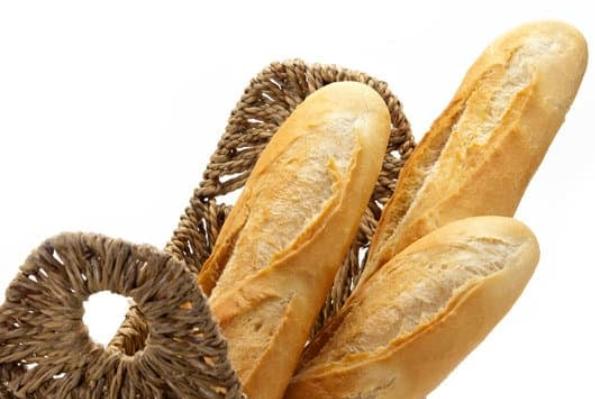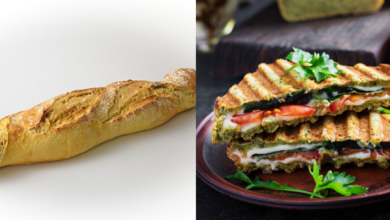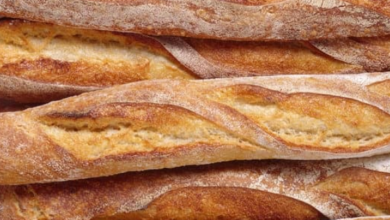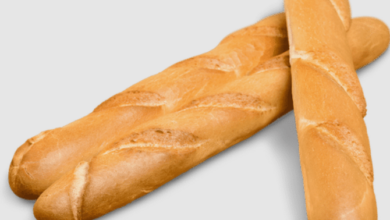The Reason Why Baguettes are Better in France

What To Know
- French bakers have mastered this delicate balance, resulting in baguettes with a crispy crust, a chewy interior, and a depth of flavor that is simply unmatched.
- The superior taste of baguettes in France is a testament to the skill, passion, and dedication of French bakers.
- From the carefully selected ingredients to the time-honored techniques, every element contributes to the creation of a baguette that is truly a “sum of all delights.
The baguette, an iconic symbol of French cuisine, is revered worldwide for its crispy crust, airy interior, and distinctive flavor. While baguettes can be found in bakeries across the globe, there’s an undeniable difference in the taste of those savored in France. This begs the question: why do baguettes taste better in France? Embark on a culinary journey as we delve into the secrets behind this gastronomic delight.
1. The Art of French Baking: A Legacy of Tradition and Expertise
French bakers are renowned for their unwavering dedication to the craft of breadmaking, a tradition passed down through generations. This expertise is evident in the meticulous attention to detail and the use of time-honored techniques that result in baguettes of exceptional quality.
2. The Magic of French Flour: A Foundation of Flavor
The foundation of a baguette’s flavor lies in the quality of the flour used. French flour, particularly flour labeled “farine de tradition française,” undergoes a longer fermentation process, resulting in a more complex flavor profile. This flour is also typically milled from high-quality wheat varieties, contributing to the baguette’s distinctive taste and texture.
3. The Perfect Balance: Water, Yeast, and Salt
The harmonious balance of water, yeast, and salt is crucial in creating a baguette that is both flavorful and structurally sound. French bakers have mastered this delicate balance, resulting in baguettes with a crispy crust, a chewy interior, and a depth of flavor that is simply unmatched.
4. The Importance of Time: A Symphony of Fermentation
Time plays a pivotal role in the development of a baguette’s flavor. The extended fermentation process allows the dough to develop a rich and complex flavor profile. This process also contributes to the baguette’s signature airy texture and chewy crumb.
5. The Kiss of Fire: The Art of Baking
The baking process is the final stage in the baguette’s journey from dough to delight. French bakers utilize traditional baking methods, often employing wood-fired ovens, to achieve the perfect crust and crumb. The high temperatures and the unique characteristics of wood-fired ovens impart a distinct flavor and aroma to the baguette.
6. Freshness: From Oven to Table
In France, baguettes are typically consumed fresh, often within hours of being baked. This ensures that the baguette retains its crispy crust, soft interior, and vibrant flavor. The freshness of French baguettes is a key factor in their superior taste.
7. The Joy of Simplicity: Embracing the Essence of Bread
At its core, a baguette is a simple bread made with a few basic ingredients. French bakers celebrate this simplicity, allowing the natural flavors of the flour, water, yeast, and salt to shine through. This commitment to simplicity results in a baguette that is both flavorful and versatile, capable of complementing a wide range of dishes.
“The Sum of All Delights”: A Culinary Symphony
The superior taste of baguettes in France is a testament to the skill, passion, and dedication of French bakers. From the carefully selected ingredients to the time-honored techniques, every element contributes to the creation of a baguette that is truly a “sum of all delights.” Whether enjoyed on its own, paired with cheese or charcuterie, or used to create a delectable sandwich, the baguette is a culinary masterpiece that embodies the essence of French gastronomy.
Information You Need to Know
Q: What makes French flour unique?
A: French flour, particularly “farine de tradition française,” undergoes a longer fermentation process, resulting in a more complex flavor profile. It is also typically milled from high-quality wheat varieties, contributing to the baguette’s distinctive taste and texture.
Q: Why is the fermentation process so important?
A: The extended fermentation process allows the dough to develop a rich and complex flavor profile. This process also contributes to the baguette’s signature airy texture and chewy crumb.
Q: What is the secret to the perfect crust?
A: French bakers often utilize traditional baking methods, such as wood-fired ovens, to achieve the perfect crust and crumb. The high temperatures and the unique characteristics of wood-fired ovens impart a distinct flavor and aroma to the baguette.





